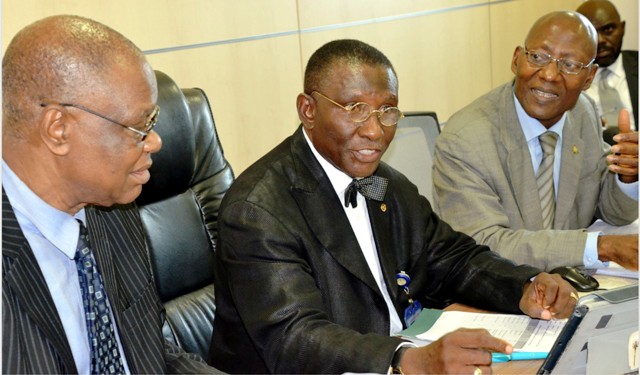Business
UN Seeks Review Of Housing Policies

The United Nations Deputy Secretary-General, Amina Mohammed, at a recent high-level General Assembly Meeting on a new UN approach to the rapidly urbanizing world, has said that UN-Habitat is failing to deliver sufficiently in cities, saying that its work in urban areas must be reinvigorated.
Mohammed, who made this statement in her opening remarks at the two-day event, said, “Today, we acknoeldge that the UN is not delivering sufficiently in cities. And, through our common effort, we will rectify this. The pround history of urban work at the UN must be harnessed at this vital time, and the UN must be seen again as the lead convener and catalyser for partners, funders, private sector and civil society organizations to scale up their work in urban areas”.
According to the source, the meeting discussed how the new urban agenda has been implemented since its adoption in October 2016 at the UN conference on Housing and Sustainable Urban Development, known as habitat 111, while examining the recommendations put forth by an independent panel reviewing the effectiveness of UN-Habitat.
It also addressed the measures contained in the Report of the Secretary-General’s Independent panel to assess, enhance effectiveness of Un-Habitat after adoption of New Urban Agenda, which was published at the beginning of August 2017. “It is clear that it is in cities where the battle for sustainability will be won or lost”. She noted.
The outcome of the meeting is expected to serve as an input to the General Assembly’s main body dealing with economic and financial issues (Second Committee), which will consider action to be taken in the light of these recommendations during its forthcoming substantive session this fall.
Mohammed noted that by 2050, 70 per cent of the world’s population could be living in urban areas, pointing out that while cities are bubs of promise, jobs, technology and economic development, they are also the epicenter of greenhouse gas emissions and many of the challenges of sustainability.
Transport
Automated Points Concession : FAAN Workers Gave 72hrs To Revise Decisions In PH

Transport
FAAN Announces Pick-Up Points for Go-Cashless Cards

Business
Fidelity Bank To Empower Women With Sustainable Entrepreneurship Skills, HAP2.0
-
Politics2 days ago
2027: NIGERIANS FAULT INEC ON DIGITAL MEMBERSHIP REGISTER DIRECTIVE
-

 Environment3 days ago
Environment3 days agoLAWMA Director Says Sweeping Reforms Have Improved Waste Collection
-
Politics2 days ago
LP Crisis: Ex-NWC Member Dumps Dumps Abure Faction
-

 Politics2 days ago
Politics2 days agoUmahi Dismisses Allegations On Social Media, Insists On Projects Delivery
-

 Sports3 days ago
Sports3 days agoAbia Not Sure To Secure continental Ticket
-
Sports3 days ago
La Liga: Yamal Records First Career Hat-trick
-

 Sports2 days ago
Sports2 days agoCity Survive Leeds’ Challenge At Elland Road
-
Politics2 days ago
NATASHA ELECTRIC VEHICLES INITIATIVE IN KOGI CENTRAL

